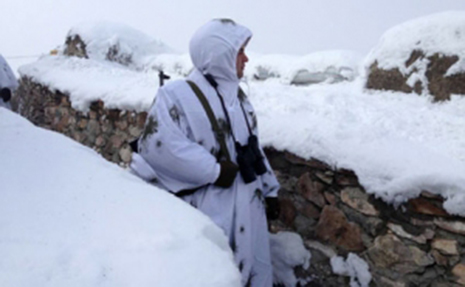International Crisis Group warns over tense situation on frontline

The group added that during the meeting with Azerbaijani and Armenian foreign ministers in Paris on January 24, the OSCE Minsk Group co-chairs expressed concern over tensions between two sides and urged them to stop military provocations.
Azerbaijani Foreign Minister Elmar Mammadyarov held separate meetings with the co-chairs of the OSCE Minsk Group and Armenian Foreign Minister Edward Nalbandian. The meetings follow Kiev talks.
After the meeting between Azerbaijani and Armenian foreign ministers, the OSCE Minsk Group co-chairs issued a statement noting that the ministers reiterated their willingness to continue working towards a peaceful, negotiated settlement.
The co-chairs also expressed their deep concern over continued violence in the region and stressed that recent incidents undermine the current negotiations and diminish the prospects for peace.
The situation on the contact line between Armenian and Azerbaijani troops has remained tense since mid-January. Armenian armed forces have recently violated the ceasefire over 2,000 times, killing two Azerbaijani army officers and wounding one civilian.
`Most ceasefire violations are being observed in the Fizuli, Agdam, Terter, Goranboy, Khojavand, and Jabrail regions,`Azerbaijani Defense Ministry spokesman Vagif Dargahli said earlier.
Armenia occupied over 20 percent of Azerbaijan`s internationally recognized territory, including Nagorno-Karabakh and seven adjacent regions, after laying territorial claims against its South Caucasus neighbor that had caused a lengthy war in the early 1990s.
The UN Security Council``s four resolutions on Armenian withdrawal have not been enforced to this day.
Peace talks, mediated by Russia, France and the US and the OSCE Minsk Group are underway on the basis of a peaceful outline -called Madrid Principle -proposed by the Minsk Group co-chairs. The negotiations have been largely fruitless so far.















































